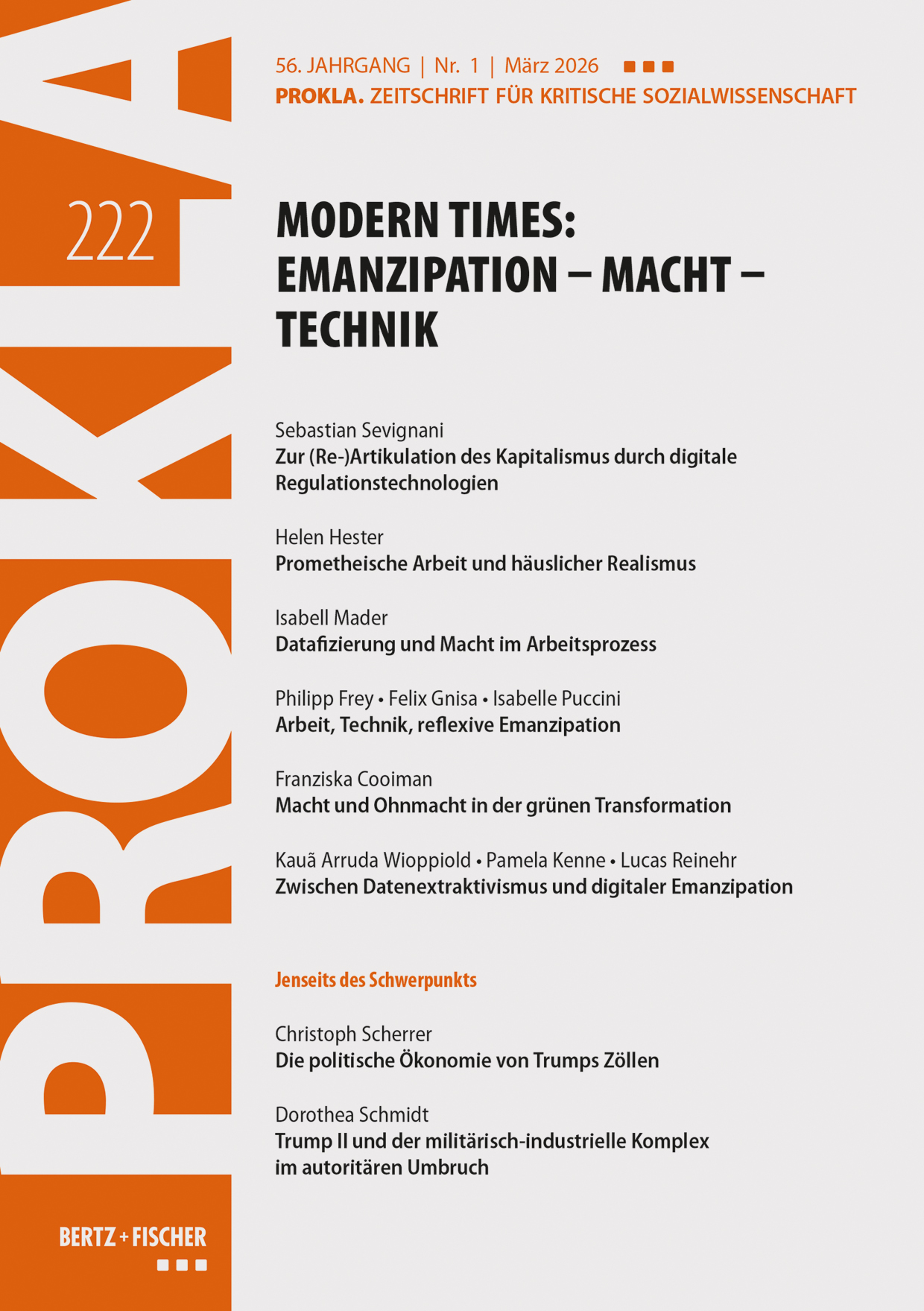PROKLA 222 erschienen: Modern Times: Emanzipation – Macht – Technik
Mit technischen Innovationen gingen schon immer Fortschrittsversprechen wie auch Erfahrungen von Macht und Ohnmacht einher. Auch heute steht Technik wieder im Zentrum von Auseinandersetzungen um gesellschaftliche Arbeitsteilung, Macht, Teilhabe und Zukunft. Wie aber ist das Verhältnis von Technik, Ohnmacht und Emanzipation beschaffen? Insbesondere digitale, vernetzte Technik, wie etwa Künstliche Intelligenz oder »Big Data«-Technologien, ist allgegenwärtig und lädt auch im Alltag zur intensiven Nutzung ein. Technik produziert nicht nur bestimmte Arbeits- und Distributions-, sondern auch Konsumptions-, Begehrens- und Lebensweisen. Ob wir derzeit den Aufstieg einer neuen Produktions- und Regulationsweise erleben, die der Einfachheit halber oft als »digitaler Kapitalismus« bezeichnet wird, ist umstritten.
In der PROKLA 222 fragen wir nach dem Charakter und den Auswirkungen dieser Veränderungen: Welche gesellschaftlichen Folgen haben die neuen Technologien? Aber auch: Auf welche emanzipatorischen Lernprozesse wider die Ohnmacht können wir uns stützen und wie lassen sie sich – auch mit Technik – verallgemeinern?
Mit Beiträgen von Madeleine Böhm, Franziska Cooiman, Philipp Frey, Felix Gnisa, Helen Hester, Yannick Kalff, Pamela Kenne, Isabell Mader, Isabelle Puccini, Lucas Reinehr, Christoph Scherrer, Dorothea Schmidt, Mariana Schütt, Sebastian Sevignani, Sandra Sieron, Ingo Stützle und Kauã Arruda Wioppiold.
Das Editorial zum Heft 222, erste frei zugängliche Texte und das Inhaltsverzeichnis finden sich hier.
Lesen Sie mehr über PROKLA 222 erschienen: Modern Times: Emanzipation – Macht – Technik





